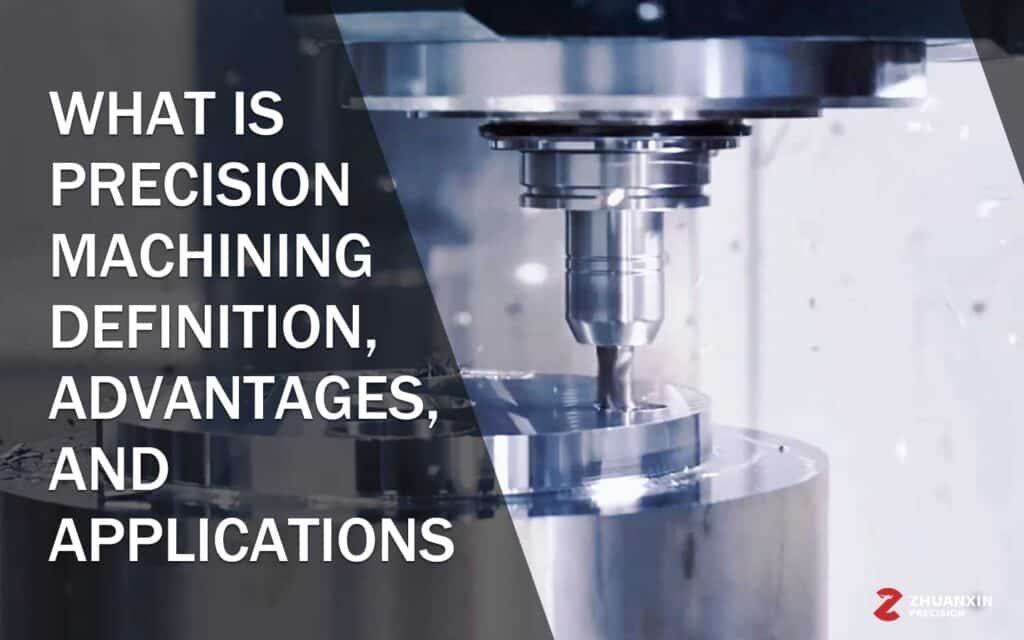Are you struggling with achieving the high-level accuracy and intricate designs needed for your manufacturing projects? This issue can lead to costly errors, delays, and compromised product performance. The solution? Precision machining. In this article, we will delve into how precision machining can elevate your production processes, delivering top-notch accuracy and efficiency.
Precision machining refers to the process of fabricating parts or products with high accuracy and tight tolerances. It involves various techniques, including CNC machining, to produce components with minimal error, meeting the exact specifications required by industries such as aerospace, automotive, and medical equipment. This method is crucial for creating products that require complex geometries and smooth finishes.
As you continue reading, we will explore the details of precision machining—answering common questions and revealing how these services can address your production challenges. Keep reading to discover how precision machining services can enhance your operations.
What is Precision Machining?
Precision machining is a manufacturing process that involves the precise cutting, shaping, and forming of materials to create components with extremely tight tolerances. The goal is to achieve accuracy to the smallest possible margin of error. This is crucial in industries where the performance and reliability of a part depend on its exact specifications. For example, in the aerospace industry, even the slightest variation in a component’s dimensions could lead to operational failure.
Precision CNC machining services are widely used in industries such as automotive, medical devices, and electronics. By utilizing advanced machinery and technologies, precision machining ensures parts are fabricated with the highest possible precision and quality, making it essential for companies that require meticulous attention to detail.
What are the Steps in the Precision Machining Process?
The precision machining process involves several critical steps, each designed to ensure the highest level of accuracy and quality. These steps typically include:
- Design and CAD Modeling: The process begins with creating a detailed design of the part, often using Computer-Aided Design (CAD) software. This helps visualize the exact specifications before any machining begins.
- Material Selection: The next step is selecting the right material for the part. Different materials have different properties that can impact the machining process and the final product’s performance.
- Machining Operations: Using CNC machines, the raw material is shaped according to the CAD design. CNC lathes, mills, and grinders are often used in this step to achieve high precision.
- Inspection and Testing: After machining, the component undergoes rigorous inspection and testing to ensure it meets the required tolerances and quality standards.
- Finishing: Depending on the application, finishing processes like polishing, coating, or anodizing may be applied to the component to enhance its surface finish and durability.
Each of these steps is critical to ensuring that the final product meets the required specifications with minimal errors.
What are the Differences Between Precision Machining Methods and Equipment?
There are several precision machining methods, each suited for specific applications and types of materials. The primary methods include:
- CNC Milling: This process uses rotating cutting tools to remove material from the workpiece. CNC milling is highly versatile and can create complex shapes with high precision.
- CNC Turning: In this method, the workpiece is rotated, and a stationary cutting tool is used to remove material. It is ideal for producing cylindrical parts.
- Grinding: This process is used for achieving a smooth surface finish or precise dimensioning. It is commonly used for parts that require extreme accuracy.
- EDM (Electrical Discharge Machining): This method uses electrical discharges to erode material from the workpiece, ideal for intricate shapes and hard materials.
The choice of method and equipment depends on the part’s complexity, material, and required tolerances.
What are the Benefits of CNC Precision Machining?
CNC precision machining offers several advantages that make it a popular choice for high-precision manufacturing:
- High Accuracy: CNC machines can achieve incredibly tight tolerances, ensuring that parts meet exact specifications.
- Consistency: CNC machines can replicate the same process hundreds or thousands of times, producing consistent results with minimal human intervention.
- Flexibility: CNC machines can be easily reprogrammed to accommodate different parts or designs, making them adaptable to changing production needs.
- Complex Geometry: CNC precision machining is capable of creating complex geometries and intricate designs that would be difficult or impossible to achieve with traditional methods.
These benefits make CNC precision machining ideal for industries that require high-quality parts with minimal margin for error.
What are the Applications of Precision Machining?
Precision machining is used across various industries due to its ability to produce parts with high accuracy. Some common applications include:
- Aerospace: Precision parts such as turbine blades, airframe components, and engine parts are often made using precision machining to ensure safety and performance.
- Automotive: Precision machining is used for manufacturing engine components, gears, and transmission parts that require exact tolerances.
- Medical Equipment: Medical devices such as surgical instruments, implants, and diagnostic equipment must meet stringent quality standards, making precision machining crucial for their production.
- Electrical and Electronics: Components like connectors, switches, and sensors require precise machining to ensure their functionality and reliability in electronic systems.
By leveraging precision machining, companies in these industries can ensure their products meet the highest performance and quality standards.
Suitable Materials for Precision Machining
Precision machining can be applied to a wide variety of materials, depending on the specific requirements of the part. Common materials used in precision machining include:
- Metals: Aluminum, stainless steel, titanium, and brass are commonly used due to their strength, durability, and ability to withstand high temperatures.
- Plastics: Materials like acrylic, polyethylene, and polycarbonate are often used for creating lightweight, durable parts.
- Composites: Advanced composite materials such as carbon fiber and fiberglass are used in industries like aerospace for their high strength-to-weight ratio.
- Ceramics: These materials are used for parts that require excellent wear resistance and high-temperature performance.
The material selection depends on the part’s intended use and the environmental conditions it will be exposed to.
What is the Typical Cost of Precision Machining?
The cost of precision machining depends on several factors, including:
- Complexity of the Part: More intricate designs require longer machining times, leading to higher costs.
- Material Type: Harder materials may be more difficult to machine, increasing costs.
- Quantity: Larger orders typically reduce the cost per unit, as setup costs are spread across more parts.
- Tolerance Requirements: Parts with tighter tolerances require more precise machining, which can raise the cost.
On average, the cost of precision machining can range from $50 to $200 per hour, depending on the complexity and requirements of the project.
How to Outsource Precision Machining Parts?
Outsourcing precision machining parts can be an effective way to reduce costs and improve efficiency. To outsource parts successfully, consider the following steps:
- Research and Select a Reliable Manufacturer: Look for manufacturers with a proven track record in precision machining and experience in your industry.
- Request Quotes and Lead Times: Obtain quotes from multiple suppliers and compare their pricing and lead times to find the best fit for your needs.
- Review Quality Assurance Procedures: Ensure that the supplier has strict quality control measures in place to meet your requirements.
- Discuss Specifications and Tolerances: Clearly communicate your part specifications, including material, dimensions, and tolerances, to ensure the manufacturer can meet your expectations.
By outsourcing precision machining, you can focus on your core operations while benefiting from high-quality, cost-effective components.
Conclusion
Precision machining plays a crucial role in industries where accuracy and high performance are essential. By using advanced CNC machining techniques, manufacturers can produce high-quality parts with tight tolerances, ensuring reliability and performance. Whether you are in aerospace, automotive, or medical manufacturing, precision machining services can help meet your production needs efficiently and cost-effectively.
Frequently Asked Questions
Q: What is the main advantage of CNC precision machining?
A: The main advantage is the ability to produce highly accurate and consistent parts with minimal human intervention.
Q: How can I reduce the cost of precision machining?
A: Consider factors such as material choice, part complexity, and order quantity to optimize cost efficiency.
Q: Can precision machining be used for prototype development?
A: Yes, precision machining is often used for prototyping, as it allows for rapid and accurate production of prototype parts.
In conclusion, precision machining offers unparalleled accuracy and flexibility in manufacturing. Whether you need a single prototype or large production runs, precision machining can ensure your parts meet the highest standards of quality and performance.



